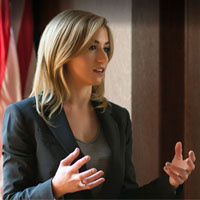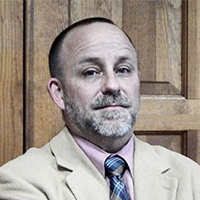 Buckingham Misdemeanor Lawyers, Pennsylvania
Buckingham Misdemeanor Lawyers, Pennsylvania
Sponsored Law Firm
-
 x
x

Click For More Info:
Call for Free Consultation
-
Law Offices of Christopher Bokas
20 West Third Street Media, PA 19063 » view mapCriminal Defense, DUI, Felonies, Misdemeanors Why Christopher Bokas?
At Law Offices of Christopher Bokas, we offer services in Criminal Law and Bankruptcy Law. With over 35 years of experience in the field I can help you.
800-997-6550  Christopher Bokas Media, PA
Christopher Bokas Media, PAAttorney At Law - PA, 1975
University of Baltimore School of Law
Sponsored Lawyers
1-5 of 5 matches
Criminal, Police Misconduct, Felony, Misdemeanor, DUI-DWI
Attorney Lauren A. Wimmer has represented individuals charged in both state and federal court with charges ranging from misdemeanors like drug and various weapons offenses to felony crimes like homicide, aggravated assault, and robbery. After years of experience as the judicial law clerk to a judge in the Philadelphia Court of Common Pleas, Criminal Trial Division (Homicide), Lauren A. Wimmer developed a complete understanding of how the system works, what tactics the prosecuting attorney may use to put you behind bars, and what weaknesses to look for in physical evidence and witness testimony against you. Attorney Lauren Wimmer is a tireless and successful advocate – let her fight for you. Lauren A. Wimmer earned her law degree from Rutgers University School of Law – Camden, where she was the Managing Articles Editor for the Rutgers Journal of Law & Public Policy, President of the Women’s Law Caucus, and co-chair of the Mary Philbrook Public Interest Awards. During law school, Ms. Wimmer worked as an extern in the United States Attorney’s Office for the Eastern District of Pennsylvania and as a Legal Services Coordinator for Philadelphia Volunteer Lawyers for the Arts. She was awarded “Best Brief” in the Judge James Hunter III Moot Court Competition and served as the research assistant to Professor J.C. Lore, Director of Trial Advocacy and co-author of one of the country’s leading books on trial advocacy. Upon graduation, Ms. Wimmer earned the National Association of Women Lawyers Award and the Pro Bono Publico Award. Ms. Wimmer is licensed to practice law in Pennsylvania and New Jersey. She is a member of the National Organization for the Reform of Marijuana Laws (NORML), the Pennsylvania and New Jersey State Bar Associations, the Philadelphia Bar Association, the Pennsylvania Association of Criminal Defense Lawyers (PACDL), and the Association of Criminal Defense Lawyers of New Jersey (ACDL-NJ).
(more)Criminal, Personal Injury, Police Misconduct, Misdemeanor
DUI-DWI, Criminal, Felony, Traffic, Misdemeanor
Paul M. Aaroe, II, Esquire. Over 30 years of experience. Personal and professional services. Son of Superior Court Judge Paul Aaroe. Dedicated to Honesty, integrety and knowledge. I can help you. Known as the DUI GUY by the courts, Attorney’s and clients, he knows the law. Call me NOW toll free - 1(877)-726-5529
(more)




 Christopher Bokas Media, PA
Christopher Bokas Media, PA



